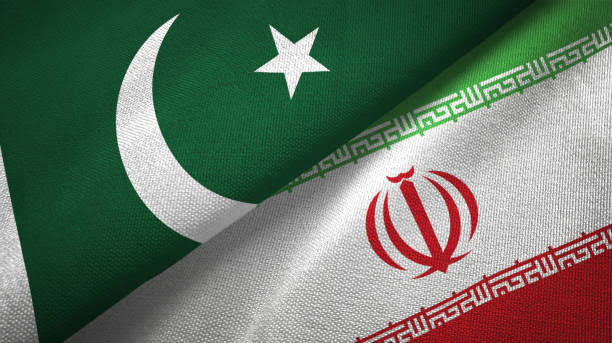What to Know:
Iran and Pakistan have agreed to restore diplomatic relations and de-escalate following tit-for-tat missile strikes against Baloch militant groups in each other’s territory, which both sides saw as violations of national sovereignty.
The Statement:
The Pakistan Ministry of Foreign Relations released a statement that it has agreed to “de-escalate the situation” following increased tensions with Iran over recent strikes in a call between Foreign Minister Jalil Abbas Jilani and Iranian Foreign Minister of Iran Hossein
Amir-Abdollahian.
“Underscoring the close brotherly relations between Pakistan and Iran, the Foreign Minister expressed Pakistan’s desire to work with Iran based on spirit of mutual trust
and cooperation,” the statement said.
?: PR NO. 1??8??/2??0??2??4??
Foreign Minister’s Telephone Call with the Iranian Foreign Minister
??? https://t.co/Ip2p8w9jiI pic.twitter.com/X4DNxRrW0n
— Spokesperson ?? MoFA (@ForeignOfficePk) January 19, 2024
“The Foreign Minister stressed that respect for territorial integrity and sovereignty must underpin this cooperation.”
The statement concluded by adding “The two Foreign Ministers agreed that working level cooperation and close coordination on counter terrorism and other aspects of mutual concern should be strengthened. They also agreed to de-escalate the situation.”
The Strikes:
On Tuesday, the IRGC launched a series of missiles strikes across the border into Pakistan’s Balochistan region, which targeted two strongholds of the Salafi extremist, Baloch-nationalist separatist group Army of Justice, which regularly carries out attacks against Iranian forces along the border. The strikes followed an attack by the group against a police station in Rask last month, which left 11 security force members dead and several others wounded.
Both the Army of Justice and Pakistani government later reported that the strikes killed two children and damaged residential areas.
????? #???_????? : ??? ????????? ????????? ?????? ????? ????? "??? ?????" ??????,???? ?? #??????? .
????? ???????? ?????? ??? ????? ??????,?????? ??? ?????? ????????? ???????????. pic.twitter.com/dfKJBiQ23V
— ????? ????? ??????? (@Tasnimarabic) January 16, 2024
In reaction to the attack, Pakistan’s Foreign Ministry condemned the attack as a “blatant violation of Pakistan’s sovereignty,” further adding that official lines of communication were not utilized before the strikes. Furthermore, diplomatic relations were temporarily suspended.
On Thursday, Pakistan announced that it had carried out “Marg Bar Sarmachar,” which was “a series of highly coordinated and specifically targeted precision military strikes against terrorist hideouts in Siestan-o-Baluchistan province of Iran.”
The strikes, which were carried out around the city of Saravan, targeted elements of the Baloch Liberation Army (BLA) and Baloch Liberation Front (BLF), two other Baloch militant groups. The Pakistani Inter-Services Public Relations reported that the strikes were “carried out using killer drones, rockets, loitering munitions and stand-off weapons.”
#Iranian Foreign Ministry Spokesperson Nasser Kan'ani has condemned the attack carried out by #Pakistan on the country's Sistan and Baluchestan province on Thursday.https://t.co/HsXCNoz6GM pic.twitter.com/9kbIazDtka
— Mehr News Agency (@MehrnewsCom) January 18, 2024
“Pakistan fully respects the sovereignty and territorial integrity of the Islamic Republic of Iran. The sole objective of today’s act was in pursuit of Pakistan’s own security and national interest which is paramount and cannot be compromised.”
Likewise, the Pakistan Army released a statement saying “because what Iran did was a violation of Pakistani sovereignty and a breach of all international covenants and conventions, the punishment was of the same type as action, and it was necessary to respond in kind.”
According to state media, the Iranian Foreign Ministry condemned the strikes as the Interior Ministry reported that nine foreign nationals were killed in the strikes, including women and children.
Why it Matters:
Iran and Pakistan have generally held warm relations with each other diplomatically, economically, and militarily, however, this latest spat underpins an ongoing point of contention between the two countries.
Both Iran and Pakistan have accused each other of harboring Baloch militant groups and not doing enough to combat them in the greater Balochistan region.
In essence, these strikes were meant to send the message to each other that militant groups are operating within their borders, but also that they are not doing anything to combat them, thus foreign intervention is needed.
Iran decided to not further escalate tensions by launching another round of strikes, signaling that both sides saw the tit-for-tat strikes as “even” and to move forward to resolve the situation. Continued strikes against each other would not only put civilians in the region at risk, but also run the chance of strikes going awry and leading to a greater military escalation between the two.
Despite being resolved for now, the issue of Baloch militancy will continue to be a source of tension between the two sides.


